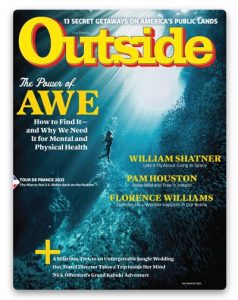In a recent Outside magazine article, the author examined research about how activities can be either positive or negative, not based on the actual activity itself, but your mindset while doing them. For example, exercising could be negative, while playing video games could be positive.
Stenseng’s view, which he first laid out in a 2012 paper, is that we should broaden our concept of escapism to include both negative and positive elements, which he dubbed self-suppression and self-expansion. The former is when you’re running away from bad feelings; the latter is when you’re seeking out good feelings.
Earlier this year in the journal Frontiers in Psychology, Stenseng and his colleagues published a study of 227 recreational runners, in which they tried to tease out the signs of self-suppressing and self-expanding escapism with a series of questionnaires. Runners who agreed with statements like “When I run, I try to learn new things about myself” or “When I run, I open up for experiences that enrich my life” were demonstrating self-expansion. Those who agreed with “When I run, I shut out the difficult things I do not want to think about,” on the other hand, were self-suppressing.
This concept also connects with the pursuit of financial freedom and retirement:
The most powerful message that I take from Stenseng’s work is the distinction between avoidance and approach—between escaping from and escaping to.
What is your primary reason for pursuing financial freedom? If you’re focusing on the negative aspects of your job – horrible bosses, annoying customers, long hours, stressful work, inadequate paycheck, then you are trying to escape from your bad job. That can be a good initial motivator, but it won’t sustain you for very long. You’ll be miserable and prone to burnout. If you do make it to retirement, you might still find yourself searching to ways to fill the day.
This research supports the idea that healthier approach is to start exploring and finding out where you want to escape to. Commit energy into finding a better job laterally and/or entire career switch. Connect with friends and ask about any opportunities. Look at the hobbies you enjoy and pick apart what you like about them. You have to find the “good enough” job that makes the saving phase more like auto-pilot. Even for very early retirees, you are looking at 15-20 years of work. Don’t spend it with people you don’t like or respect. In the end, it’s the retirees with engaging hobbies and friends that are the happy ones.
The August 2023 issue of Costco Connection profiles the second “what if” careers of several different folks. Bank executive turned woodworker. Teacher turned baker. TV producer turned college professor.




